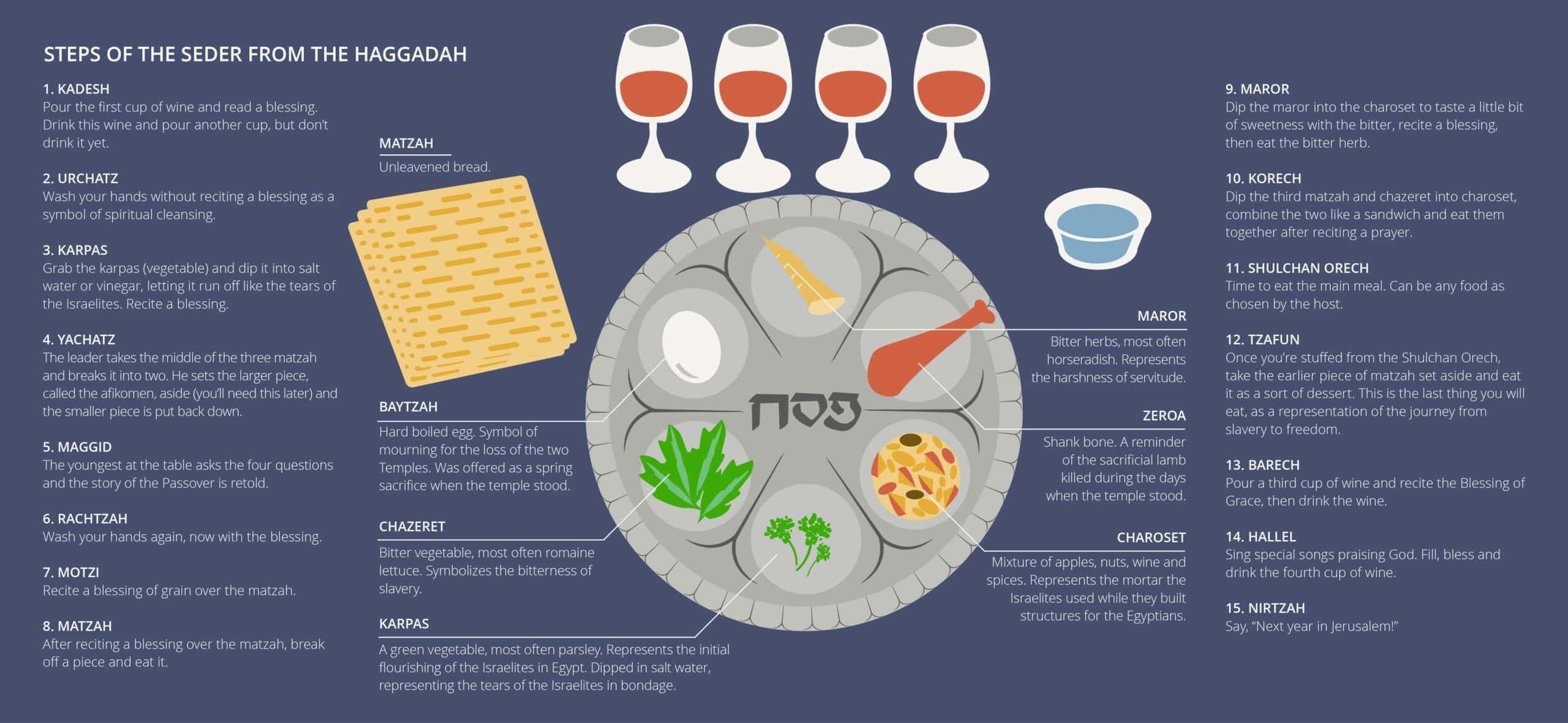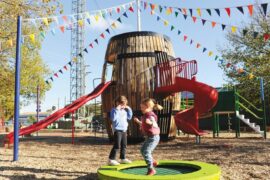Embarking on the Journey of Passover: The Celebration of Freedom and Family
Hello amazing parents and curious readers! Have you ever wondered why every spring, Jewish families around the world gather to partake in a feast filled with peculiar foods, ancient stories, and a sense of unity that transcends time? That’s right, we’re talking about Passover! Also known as Pesach, this vibrant festival is steeped in history and meaning, and it’s a fantastic opportunity to teach our kids about the rich cultural tapestry that makes up our world. Buckle up, as we’re about to dive into a tale as old as time that explains why Passover is such a cherished celebration in the Jewish community!
The Historical Backdrop of Passover
Passover is one of the most beloved Jewish holidays and it has a backstory that’s just as captivating as the festivities themselves. So, why do we celebrate Passover? Let’s rewind to ancient Egypt. The story begins with the Israelites, who were enslaved by the Pharaoh. Through a series of miraculous events and divine interventions, the Israelites were liberated from bondage, which is the cornerstone of the Passover tale. The holiday commemorates this great escape and the freedom that followed.
Passover’s name itself—Pesach in Hebrew—hints at the miraculous nature of the events. It comes from the idea that the angel of death “passed over” the houses of the Israelites during the final plague, sparing their firstborn children. This event urged the Pharaoh to finally let the Israelite slaves go free, changing the course of history.
The Passover Seder: A Feast of Meaning
At the heart of Passover is the Seder, which is so much more than a meal—it’s an experiential retelling of the Exodus tale. It’s a mix of tradition, food, songs, and storytelling that brings the history to life, making it an interactive history lesson for the whole family. Every item on the Seder plate is a symbol, each food item a character in the story. From the bitter herbs representing the bitterness of slavery to the charoset symbolizing the mortar used by the slaves to build the Pharaoh’s cities, it’s a feast for the senses and the spirit.
And here’s a fun twist: kids are the stars of the show during a Passover Seder! They ask questions, search for hidden matzah (affectionately called the Afikomen), and keep the adults on their toes. It’s a way to ensure the next generation understands and values their heritage and history. After all, storytelling is a powerful way to learn, and Passover harnesses it beautifully.
Cultural Significance and Modern-Day Reflections
Passover isn’t just about looking back; it’s about connecting to our present and future. In today’s world, Passover can be a platform for discussing themes of freedom, social justice, and the ongoing struggle against oppression. As parents, we can use the Passover story to instill important values in our children, like empathy and courage.
In modern celebrations, many families also take the opportunity to discuss what freedom means in their own lives and in the lives of others around the globe. It is a poignant reminder that the quest for liberty and dignity is as relevant today as it was thousands of years ago.
So, there you have it, dear friends—a glimpse into the fascinating world of Passover and why it continues to resonate with young and old alike. Stay tuned, as we delve deeper into the customs, the foods, and the joy that marks this extraordinary holiday. Next, we’ll explore the preparation for Passover, from cleaning the house to setting the Seder table. And, of course, we’ll share some tips on involving the entire family in the festivities.
Remember, Passover is a time for joy, reflection, and togetherness. It’s a beautiful tapestry woven through generations, binding families with the threads of history and tradition. Embrace the journey, learn the stories, taste the symbols, and make precious memories this Passover with those you cherish most. Keep smiling, the story of Passover is one of triumph and joy, and we have yet to uncover all its layers!

5 Essential Things Parents Should Know While Preparing for Passover
Cleaning and Koshering the Home
As Passover approaches, one of the most significant preparations involves cleaning the home from top to bottom to remove chametz (leavened bread and any food containing wheat, barley, rye, oats, or spelt that has risen). This meticulous cleaning culminates in the ritual of bedikat chametz, where the last bits of chametz are hunted down by candlelight and then burned the next morning. For the duration of the holiday, only specially prepared kosher for Passover foods are consumed.
Planning the Passover Seder
The Seder is the focal point of Passover celebration. Preparing for this important night requires planning and preparation. You’ll need a Seder plate featuring all the traditional symbols, enough Haggadahs (the text recited during the Seder) for your guests, and a festive meal that adheres to Passover dietary restrictions. Remember to involve the children in the preparations to help make the experience more meaningful for them.
Understanding the Seder Plate
Each item on the Seder plate is packed with symbolism. The shank bone represents the lamb sacrificed in the Temple, while the egg symbolizes new life and renewal. Bitter herbs remind us of the bitterness of slavery, charoset (a sweet mixture of apples, nuts, wine, and cinnamon) resembles the mortar made by the slaves, and karpas (a green vegetable) symbolizes spring and hope. Prepare these elements with your children to impart the stories they represent.
Educating through Interactive Storytelling
Passover is an excellent opportunity for experiential learning. The Seder is designed to spark curiosity, especially among children. Encourage them to ask the Four Questions and engage with the Seder by hiding the Afikomen for them to find. Explain the story of the Exodus in an age-appropriate way to foster an understanding of freedom and perseverance.
Embracing Modern Traditions and Inclusivity
While Passover is an ancient festival, it can be infused with contemporary significance. It’s a chance to discuss freedom and redemption in ways that resonate today, drawing parallels with current events and personal experiences. You can include modern rituals, such as placing an orange on the Seder plate as a symbol of inclusion, especially for marginalized communities within the Jewish world and beyond.
Passover preparation involves more than cleaning and cooking; it’s about creating an atmosphere of learning, celebration, and tradition. By engaging with these five key aspects, you ensure a meaningful and lively festival for your entire family. Embrace the planning as a journey in itself, a time to impart wisdom and shared history that will enrich your family’s Passover experience.
Remember, the story of Passover is a narrative of liberation and hope that continues to inspire. It encourages us to consider our freedoms and blessings, and to cherish the bonds of family and community. As Passover draws near, may your preparations bring not only a clean and kosher home but also a renewed sense of connection to your heritage and to each other.
Let’s Dive Into the Deliciousness: Passover Foods and Recipes
Now, let’s talk about the yummy part of Passover—the food! Your Seder table might be different from your neighbor’s, and that’s the beauty of it. Every family has its own cherished recipes passed down through generations. Matzah ball soup, brisket, kugel – these are just a few of the staples you might find at a Passover feast. And let’s not forget the sweet treats like macaroons and flourless chocolate cake to round off the meal.
While you’re preparing these dishes, involve your little sous-chefs. Cooking together is another form of storytelling, and each recipe is an ancestor’s tale waiting to be told. So whether you’re a seasoned Passover pro or new to the traditions, gather your spices, heat up the kitchen, and prepare for an unforgettable celebration of taste and tradition!
In the end, why is Passover celebrated? It’s about so much more than just the historical Exodus. It’s about community, renewal, the delight of spring, and the joy of coming together. Through this guide, parents and children alike can prepare not just in terms of food and cleanliness, but in heart and mind for a truly meaningful Passover.
See more great Things to Do with Kids in New Zealand here. For more information see here
Disclaimer
The articles available via our website provide general information only and we strongly urge readers to exercise caution and conduct their own thorough research and fact-checking. The information presented should not be taken as absolute truth, and, to the maximum extent permitted by law, we will not be held liable for any inaccuracies or errors in the content. It is essential for individuals to independently verify and validate the information before making any decisions or taking any actions based on the articles.




